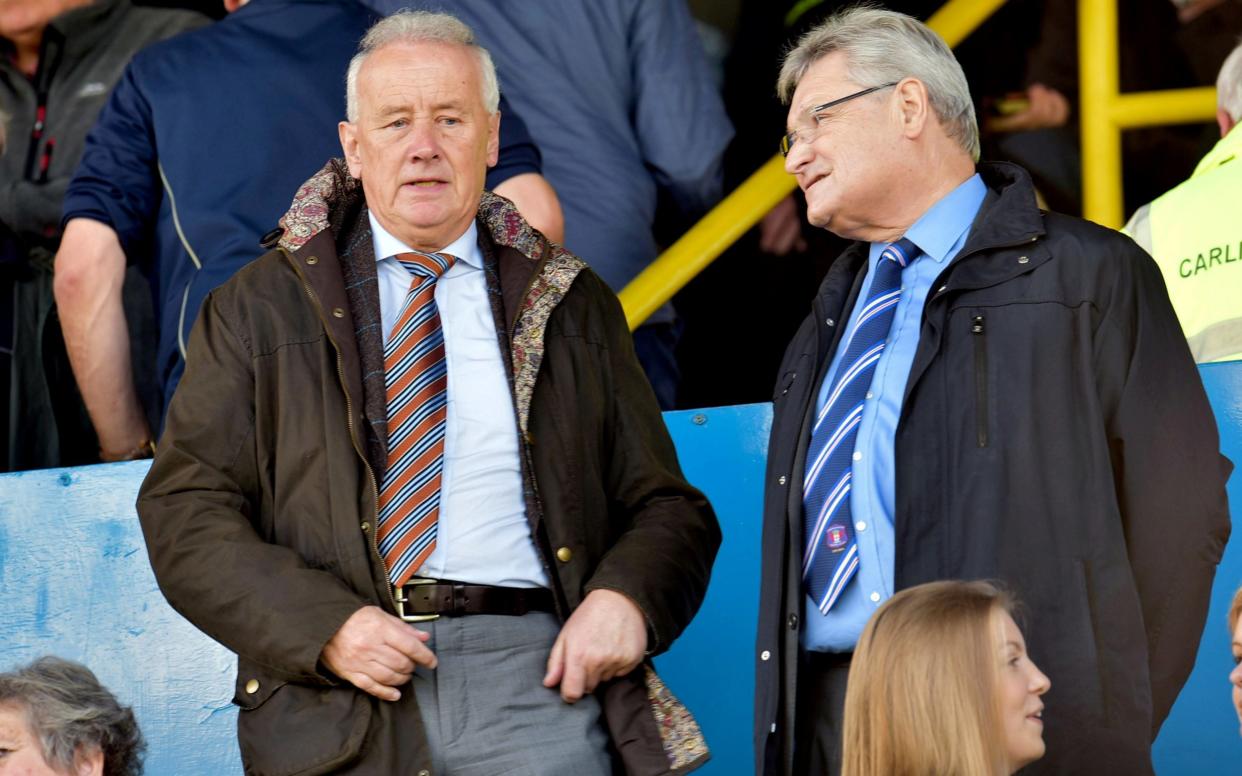Exclusive: Rick Parry accuses PFA of putting players' jobs at risk by rejecting salary cap

Rick Parry, the English Football League chairman, has accused the Professional Footballers’ Association of jeopardising their members’ jobs by failing to back salary cap proposals.
League One and Two clubs agreed on a salary cap for players in August, with the EFL hierarchy arguing the measure is an essential short-term response to safeguard their financial future during the Covid pandemic.
Similar proposals are being discussed by Championship clubs. But the PFA sent a hard-hitting letter to its members condemning what they described as the ‘unlawful’ imposing of the rules.
In their letter, the PFA said the issue of salary caps required ‘open and constructive discussion’.
“We made it clear to the EFL that we wanted to work closely with them and the clubs on this issue in the appropriate forum, so all of the financial implications could be considered carefully,” the PFA wrote to its members.
“However, the EFL and clubs voted through the Rules (the salary cap) without undertaking appropriate consultation with us. The PFA's strong and clear position is that the Rules are unlawful and should be revoked.”
Parry has taken exception to that version of events, and has accused the PFA of failing to offer the necessary support in the midst of a grave crisis which will impact the livelihood of hundreds of lower league players.
He says he was ‘incredibly disappointed’ at the lack of PFA support when the pandemic hit last season, suggesting the organisation made little effort to engage in the constructive talks they are now citing as so vital.
“We believe the salary caps are lawful. The PFA has a different view,” said Parry, in an interview with Telegraph Sport columnist Jamie Carragher.
“We didn’t get any PFA support last year when the clubs were in crisis. It was incredibly disappointing. We wanted to talk constructively about deferrals and cuts given we were all in it together, and we got very little support. We thought it unusual.”
Parry says the PFA stance is another example of different factions within the game failing to acknowledge the precariousness of the situation.
“We are on the same side of the table, not opposite sides,” said Parry.
“If you are trying to protect the employment of members we have to be constructive or clubs will cut squads. There has to be common sense.”
The PFA says they have launched a legal challenge against the salary cap, and have instructed their members to inform the union if they are asked to accept a pay cut.
Players have been informed that the cap includes signing on fees, appearance fees, individual player bonuses, agents' fees, image rights agreements, personal expenses and any settlement agreements.


